WHS 'could use help right now more than ever' after unexpectedly taking in 50 dogs
UPDATE (March 29): The Wisconsin Humane Society has indicated they can now say the reason they took in so many dogs was because of canine brucellosis. Scroll to the bottom of this post to read updated information on this matter.
MILWAUKEE -- Officials with the Wisconsin Humane Society asked for the public's help Wednesday, March 27 after they unexpectedly took in 50 dogs and puppies.
When situations like this take place, it can be overwhelming.
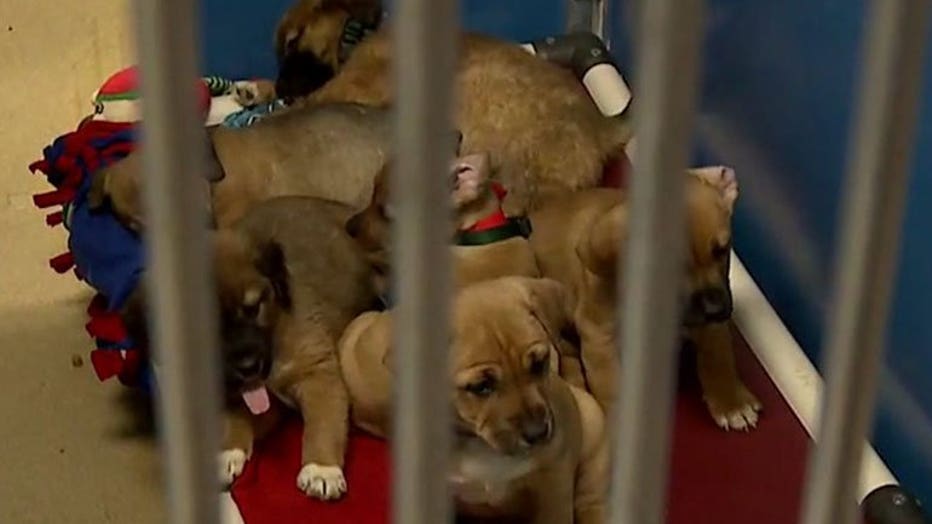

Angela Speed
"We maybe had 30 to 45 minutes notice that they were coming," said Angela Speed, WHS spokeswoman.
WHS took the animals in to help other local shelters, and called this an urgent request for your help.
"Having more than 50 dogs arrive in your shelter, especially unexpectedly, is definitely putting a burden on our resources," said Speed.
Officials said the dogs were supposed to arrive at another shelter in the area, but that shelter wasn't able to take them in, so WHS officials set up crates in classrooms within minutes to make room.

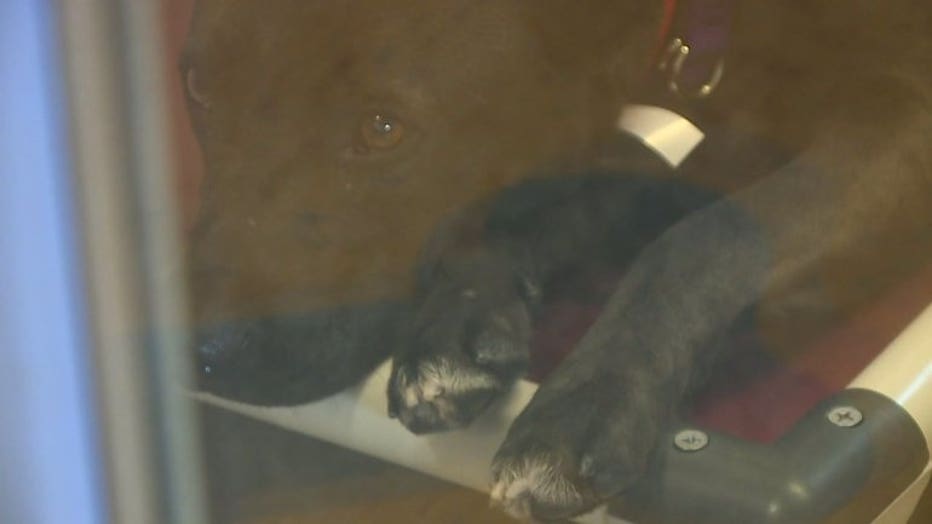
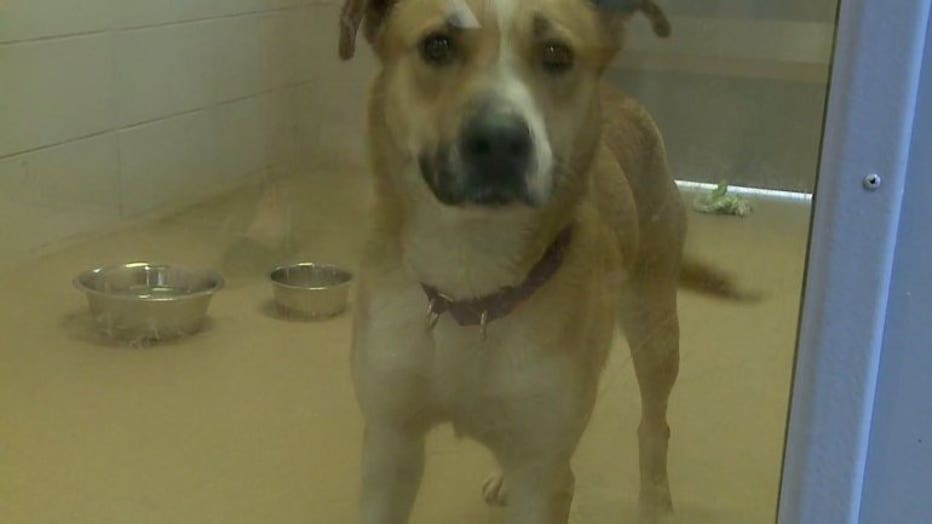
"It's highly unusual to have this many animals come to us in a single day where we have no notice," said Speed.
WHS officials said they were seeking foster families, donated items (towels, leashes, toys, food, etc.) and monetary donations.
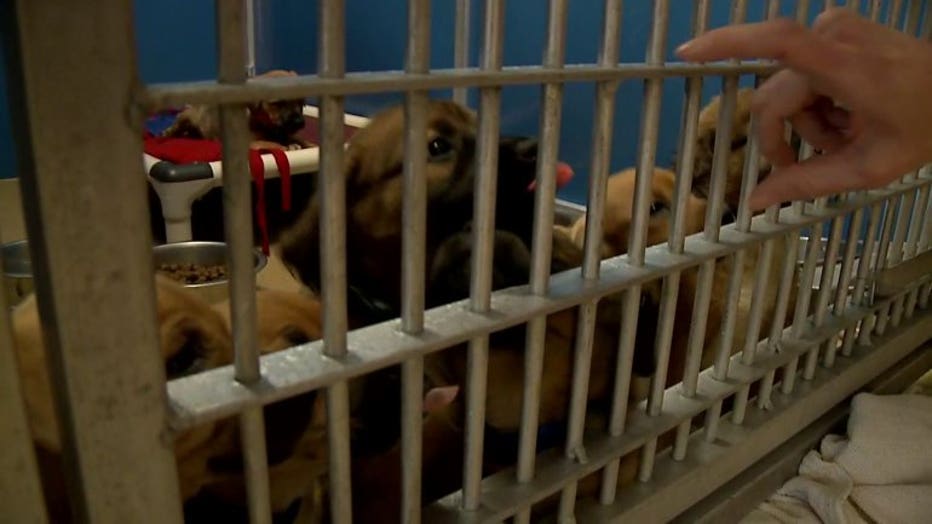
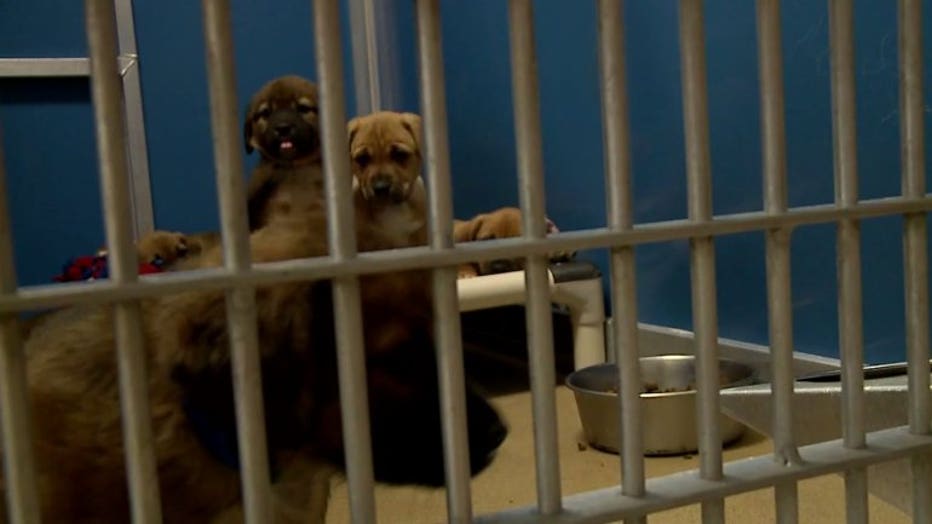
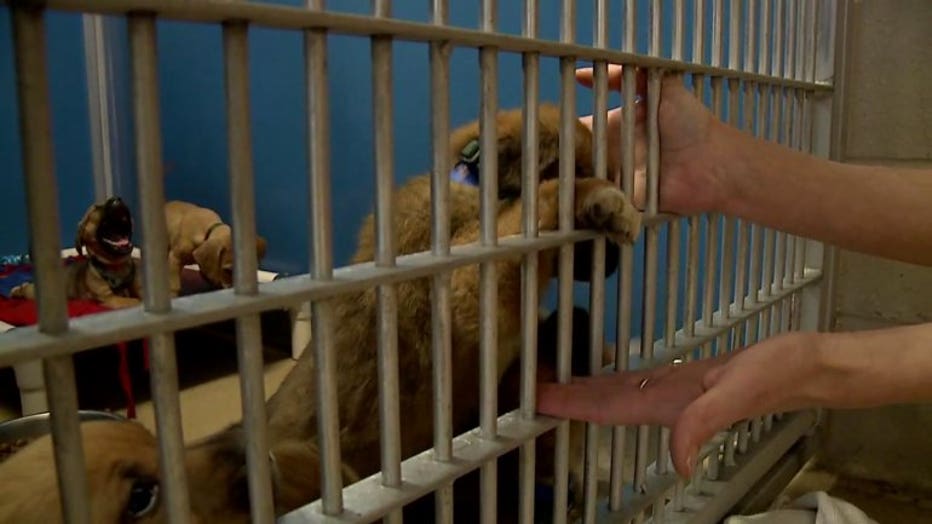
"We could use the help right now more than ever. Foster parents literally expand the space for our shelter and allow us to care for more animals," said Speed.
More on the update (info from a news release by UW-Madison)
Two dogs recently transported from overseas to animal shelters and rescue groups in Wisconsin have tested positive for canine brucellosis. The Shelter Medicine Program at the University of Wisconsin-Madison School of Veterinary Medicine is working closely with affected organizations to implement precautionary measures.
None of the transported dogs appear to be ill and the risk of human or animal transmission is low, according to Shelter Medicine Program Director Sandra Newbury, a clinical assistant professor in the school.
"This is a low-risk situation, but in an abundance of caution, the dogs have been placed in quarantine to even further reduce the risk," says Newbury. "The shelters are on top of this and are working with our program, guided by state health officials."
Canine brucellosis is a reproductive disease in dogs caused by Brucella canis, a bacterium mainly transmitted during breeding or birth. The infection is found worldwide but is rare in pet dogs in the United States. The bacteria are transmissible to people through contact with infected fluids, but human cases are very uncommon.
It is also not considered a risk to the agricultural industry. The B. canis bacterium is different from the Brucella pathogens that infect cattle and pigs. Cattle, swine and sheep have been found to be highly resistant to infection with B. canis.
In March, six Wisconsin animal shelters and rescue organizations, including the Washington County Humane Society, Humane Animal Welfare Society in Waukesha, Humane Society of Sheboygan County, Elmbrook Humane Society and Underdog Pet Rescue, received 26 dogs transported from South Korea by Humane Society International.
None of the dogs transported from South Korea to Wisconsin show signs of illness, but diagnostic testing revealed two dogs to be positive for B. canis. Wisconsin law requires that positive canine brucellosis tests be reported to the state. Public health authorities with the Wisconsin Department of Agriculture, Trade and Consumer Protection were immediately notified and have led the response.
Each dog, even those that tested negative for canine brucellosis, will be quarantined until they are no longer considered at risk. In addition, shelter dogs that were potentially exposed to the dogs from South Korea will also be quarantined. In total, approximately 100 dogs are expected to require quarantine.
The UW-¬Madison Shelter Medicine Program is advising the shelters on quarantine procedures and, in coordination with Humane Society International and the shelters, is working to open one or more temporary quarantine facilities for possibly exposed dogs. This will allow the shelters to remain open or resume operations as quickly as possible. At present, the Washington County Humane Society is open for all other operations aside from dogs, but is working diligently to resume normal dog operations as well.
"Because testing will extend into May, an off-site quarantine will allow the shelters to go back to their normal operations and the potentially exposed dogs to make it through and then be adopted, while minimizing any risk to the public," Newbury says.
Some dogs were placed into adoptive homes prior to the positive test results. In those cases, state public health officials are contacting adopters to instruct them to place the dogs in quarantine in the home.
Newbury emphasizes there is little risk for other pets and members of the public. "There's a very low risk of transmission for canine brucellosis outside of breeding operations," she says.
The Wisconsin Humane Society did not receive dogs from the Humane Society International transport but is providing assistance by taking in dogs that would otherwise go to the affected shelters.

